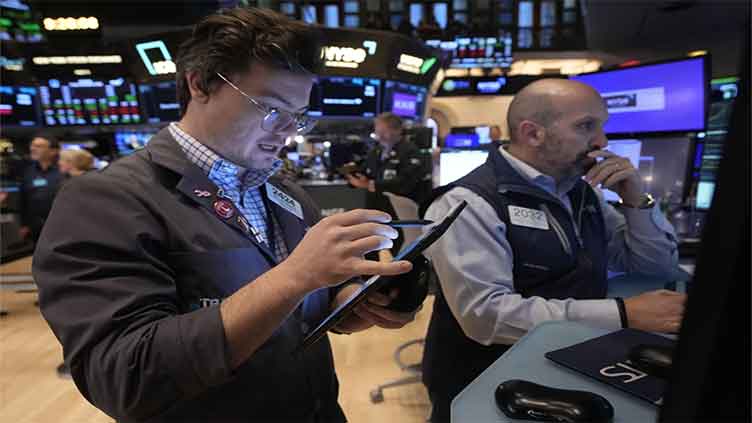Wall Street mixed as major US indexes struggle to end week in the green

Business
Wall Street mixed as major US indexes struggle to end week in the green
Wall Street was mixed with low volumes of trading Friday with major U.S. markets struggling to end in positive territory for the week.
Futures for the S&P 500 were virtually unchanged before the bell, while futures for the Dow Jones Industrial Average fell 0.3% and Nasdaq futures rose 0.3%. Only the S&P is in the green this week, and just barely, after a warning about the strength of sales from Walmart on Thursday.
Rivian slid 3.8% after the electric truck maker issued weaker-than-expected guidance, despite posting a smaller loss and stronger fourth-quarter sales than Wall Street expected.
UnitedHealth Group tumbled more than 8.6% in premarket after the Wall Street Journal reported that the U.S. Department of Justice is investigating the health care giant’s Medicare billing practices. The report published Friday referred to the DOJ’s action as a “civil fraud investigation.”
Shares of other big pharmacy benefits managers also fell, with CVS down 3.5% and Cigna off a little more than 2%.
UnitedHealth Group shares have been under pressure since the Dec. 4 shooting death of the CEO of its health care division, Brian Thompson. The attack unleashed a wave of public resentment from Americans frustrated with insurance companies and their policies.
Booking.com rose 2.1% after the online travel company and owner of Priceline beat sales and profit forecasts and authorized another $20 billion share buyback.
Later Friday, the National Association of Realtors’ releases new data on existing home sales. Shares of home improvement retailers Home Depot and Lowe’s were up slightly before the bell.
At midday in Europe, France’s CAC 40 climbed 0.5%, while Germany’s DAX rose 0.2%. Britain’s FTSE 100 ticked up less than 0.1%.
In Japan, where investors were watching currency swings, the benchmark Nikkei 225 edged up 0.3% to finish at 38,776.94.
A weak yen is a boon for some export-reliant manufacturers in Japan. In currency trading, the U.S. dollar rose to 150.38 Japanese yen from 149.53 yen. The euro cost $1.0470, down from $1.0500.
Japan’s government released the nationwide core consumer price index, excluding volatile fresh food prices, which rose 3.2% in January from the same month last year.
The inflation rate is key in the Bank of Japan’s decision on interest rates, and the rate has remained at or above the central bank’s target of 2% inflation. Last month, the Bank of Japan raised its key policy rate to 0.5% from 0.25%.
“A variety of factors have market expectations pivoting toward rate hikes: recent hawkish comments from BoJ officials; stronger-than-expected GDP data; and a rising CPI,” said Min Joo Kang, senior economist at ING Economics.
Australia’s S&P/ASX 200 shed 0.3% to 8,296.20, while South Korea’s Kospi was little changed, adding less than 0.1% to 2,654.58. Hong Kong’s Hang Seng jumped 4.0% to 23,477.92, boosted by a surge in shares of Alibaba, which reported robust financial results.
Chinese e-commerce firm Alibaba Group Holding posted its fastest revenue growth in more than a year, beating analyst expectations as it capitalizes on the artificial intelligence boom in China. Alibaba’s net profit jumped to 48.9 billion yuan, or $6.71 billion, in figures released Thursday.
Alibaba’s New York-traded stock rose 8.1% following the earnings results. Chief Executive Eddie Wu said Alibaba plans to “aggressively invest” in artificial intelligence and cloud computing infrastructure.
Chinese technology companies are attracting global attention after DeepSeek recently released a new AI model that it says is on par with similar models from U.S. companies such as ChatGPT-maker OpenAI.
The Shanghai Composite gained 0.9% to 3,379.11.
Benchmark U.S. crude fell 62 cents to $71.86 a barrel. Brent crude, the international standard, lost 59 cents to $75.89 a barrel.


